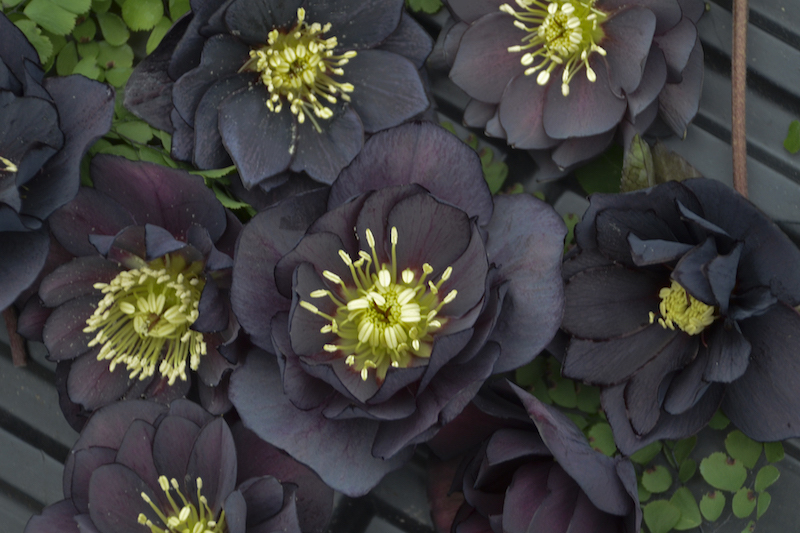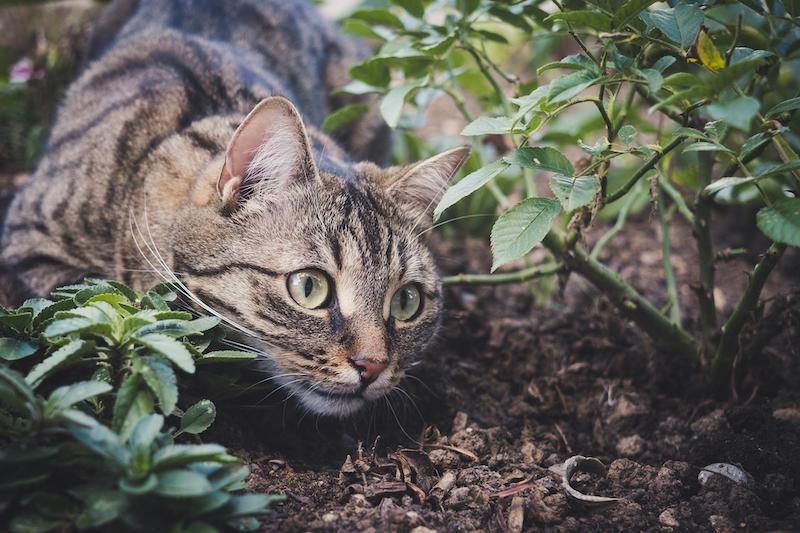Hellebore is poisonous to both people and animals and should not be eaten. Some people have a mild skin irritation reaction after touching the leaves, sepals, or flower stems of a hellebore plant. This plant contains three toxic ingredients: glycosides, which can cause the heart to slow down, saponin which acts on the nervous system to cause drowsiness, and helleborine in the roots that may cause vomiting or diarrhea when ingested.

Are Hellebore Poisonous to Children
Hellebore is poisonous to all humans and should not be consumed by anyone, including children and toddlers. If your child is prone to consume nearby items, keep them away from hellebores in your gardens.
Are Hellebore Poisonous to Dogs
Dogs and puppies should not consume hellebore because it is moderately toxic if ingested in large quantities. Symptoms of poisoning include diarrhea, difficulty breathing, excessive drooling and thirst, lethargy, vomiting, and weakness.
Are Hellebore Poisonous to Cats
Hellebore is poisonous to kittens and cats. This plant has a bitter taste making it unlikely that your pet will eat a large quantity. Symptoms of hellebore poisoning include drooling, abdominal pain, and diarrhea.

Are Hellebore Poisonous to Other Animals
Hellebore is toxic to farm animals including horses, pigs, cows, and goats. The poisonous ingredients in hellebore can lead to cardiac distress and renal failure. or even death if ingested in a large quantity.
Symptoms of Hellebore Poisoning
Always check with your doctor or veterinarian for guidance if you suspect hellebore poisoning. Here are some common symptoms to look out for:
- Vomiting
- Slow heart rate
- Difficulty breathing
- Diarrhea
- Drooling
- Lethargy
- Weakness
To prevent hellebore poisoning, you can use physical barriers such as decorative fencing to prevent children or animals from getting too close for a taste. Dogs and cats can sometimes suffer from a nutrient deficiency if they continually gnaw on certain things. If you notice unusual chewing behavior, it might be time for a thorough check up from your vet. There are also animal deterrent products on the market that can help prevent animals from chewing on plants.
Pet Poison Helpline
If something were to happen to your furry friend, and you suspect that they are suffering from hellebore poisoning, there is a poison control hotline to call for 24/7 vet advice. It is called the Pet Poison Hotline, and their phone number is (855) 764-7661.
Click here for a complete list of Pet Safe Plants.
Sources:
"Heavenly Hellebores." The Ohio State University Extension. bygl.osu.edu
"Hellebore." American Society for the Prevention of Cruelty to Animals. aspca.org
"Helleborus orientalis." North Carolina Extension Gardener Plant Toolbox. plants.ces.ncsu.edu
 |
Author Maureen Farmer - Published 07-04-2022 |


